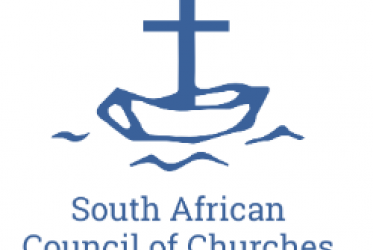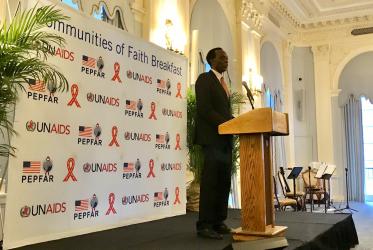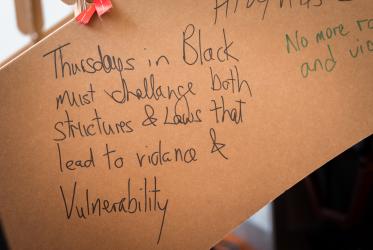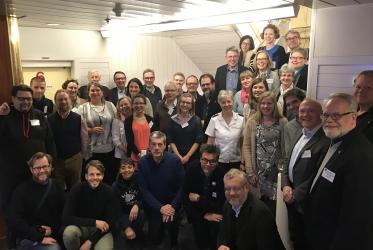Displaying 21 - 40 of 60
South Africans draw hope despite recurring challenges
16 December 2019
Churches in southern Africa stand against violence, xenophobia
10 October 2019
When you strike the women, you strike a rock
18 September 2019
‘European humanitarian corridor’ proposed
02 May 2019
Dr Cecile De Sweemer, the doer of God
30 November 2018
Romani people seek “lives of decency, dignity, and justice”
27 September 2018
Film recognized for highlighting human rights in DRC
18 April 2018
South Sudan church leaders offer Christmas season roadmap for hope
21 December 2017
Trying to do good for the world
18 December 2017
Conference explores Christian approach to borders
05 October 2017
Gender-based violence concerns ‘all of humanity’
11 July 2017















